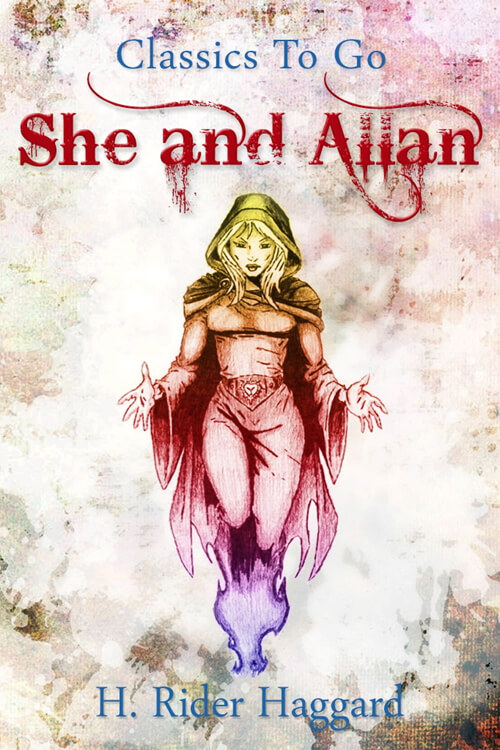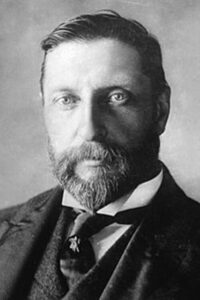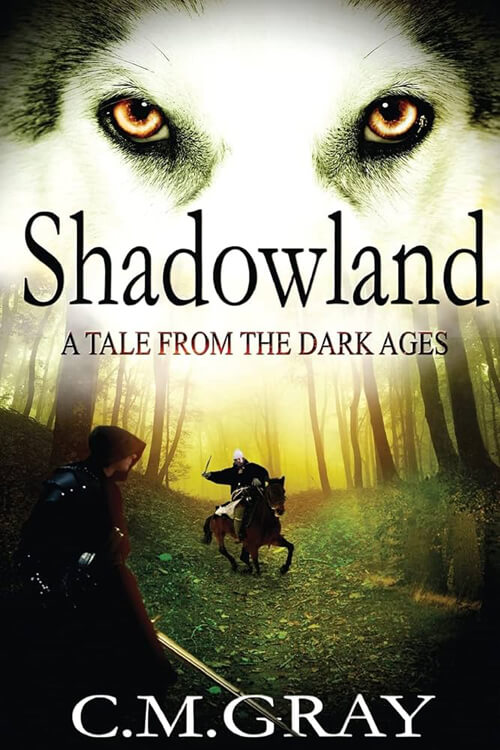
She and Allan
I believe it was the old Egyptians, a very wise people, probably indeed much wiser than we know, for in the leisure of their ample centuries they had time to think out things, who declared that each personality is made up of six or seven different elements, although the Bible only allows us three, namely, body, soul, and spirit. The body that the man or woman wore, if I understand their theory aright which perhaps I, an ignorant person, do not, was but a kind of sack or fleshly covering containing these different principles. Or maybe it did not contain them all but was simply a house as it were, in which they lived from time to time and seldom all together, although one or more of them was present continually, as though to keep the place warmed and aired.
This is but a casual illustrative suggestion, for what right have I, Allan Quatermain, out of my little reading and probably erroneous deductions, to form any judgment as to the theories of the old Egyptians? Still, these, as I understand them, suffice to furnish me with the text that man is not one, but many, in which connection it may be remembered that often in Scripture he is spoken of as being the home of many demons, seven, I think. Also, to come to another far-off example, the Zulus talk of their witch doctors as being inhabited by “a multitude of spirits.”
Anyhow one thing I am quite sure of, we are not always the same. Different personalities actuate us at different times. In one hour passion of this sort or the other is our lord; in another, we are reason itself. In one hour we follow the basest appetites; in another we hate them and the spirit arising through our mortal murk shines within or above us like a star. In one hour we desire to kill and spare not; in another, we are filled with the holiest compassion even towards an insect or a snake, and are ready to forgive like a god. Everything rules us in turn, to such an extent indeed, that sometimes one begins to wonder whether we rule anything.
Read or download Book
H. Rider Haggard
Sir Henry Rider Haggard KBE (22 June 1856 – 14 May 1925) was an English writer of adventure fiction romances set in exotic locations, predominantly Africa, and a pioneer of the lost world literary genre. He was also involved in land reform throughout the British Empire. His stories, situated at the lighter end of Victorian literature, continue to be popular and influential.
Life and career
Family
Henry Rider Haggard, generally known as H. Rider Haggard or Rider Haggard, was born at Bradenham, Norfolk, the eighth of ten children, to William Meybohm Rider Haggard, a barrister, and Ella Doveton, an author and poet. His father was born in Saint Petersburg, Russia, in 1817 to British parents.
A member of the Haggard family, he was the great-nephew of the ecclesiastical lawyer John Haggard an uncle of the naval officer Admiral Sir Vernon Haggard and the diplomat Sir Godfrey Haggard.
Education
Haggard was initially sent to Garsington Rectory in Oxfordshire to study under Reverend H. J. Graham, but, unlike his elder brothers, who graduated from various private schools, he attended Ipswich Grammar School. This was because his father, who perhaps regarded him as somebody who was not going to amount to much, could no longer afford to maintain his expensive private education. After failing his army entrance exam, he was sent to a private crammer in London to prepare for the entrance exam for the British Foreign Office, where he never sat. During his two years in London, he came into contact with people interested in the study of psychic phenomena.
Writing career
After returning to England in 1882, Haggard published a book on the political situation in South Africa, as well as a handful of unsuccessful novels, before writing the book for which he is most famous, King Solomon’s Mines. He accepted a 10 percent royalty rather than £100 for the copyright.
A sequel soon followed entitled Allan Quatermain, followed by She and its sequel Ayesha, swashbuckling adventure novels set in the context of the Scramble for Africa (although the action of Ayesha happens in Tibet). The hugely popular King Solomon’s Mines is sometimes considered the first of the Lost World genre. She is generally considered to be one of the classics of imaginative literature, and with 83 million copies sold by 1965, it is one of the best-selling books in history. He is also remembered for Nada the Lily (a tale of adventure among the Zulus) and the epic Viking romance, Eric Brighteyes.
Legacy
Psychoanalyst Carl Jung considered Ayesha, the female protagonist of She, to be a manifestation of the anima. Her epithet “She Who Must Be Obeyed” is used by British author John Mortimer in his Rumpole of the Bailey series as the lead character’s private name for his wife, Hilda, before whom he trembles at home (even though he is a barrister with some skill in court). Haggard’s Lost World genre influenced popular American pulp writers such as Edgar Rice Burroughs, Robert E. Howard, Talbot Mundy, Philip José Farmer, and Abraham Merritt. Allan Quatermain, the adventure hero of King Solomon’s Mines and its sequel Allan Quatermain, was a template for the American character Indiana Jones. Quatermain has gained recent popularity thanks to being a main character in the League of Extraordinary Gentlemen.
Graham Greene, in an essay about Haggard, stated, “Enchantment is just what this writer exercised; he fixed pictures in our minds that thirty years have been unable to wear away.” Haggard was praised in 1965 by Roger Lancelyn Green, one of the Oxford Inklings, as a writer of a consistently high level of “literary skill and sheer imaginative power” and a co-originator with Robert Louis Stevenson of the Age of the Story Tellers.






